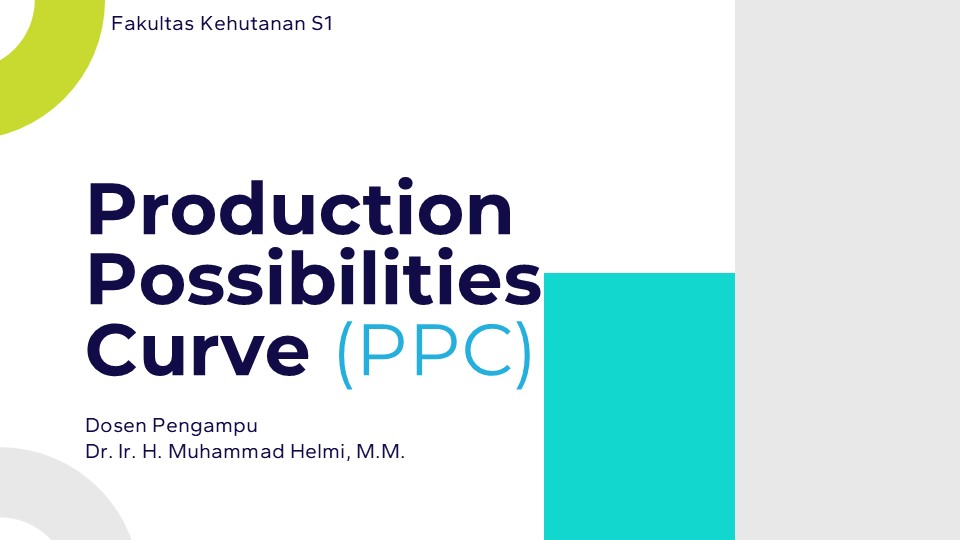Production Possibilities Curve (PPC)
The Production Possibilities Curve (PPC) shows the maximum combinations of goods and services that an economy can produce in a given period if all resources are fully and efficiently utilized with fixed technology. There is always a trade-off due to the scarcity of resources.
Microeconomics and Macroeconomics
Microeconomics: Studies small economic agents like individual firms, consumers, and workers.
Macroeconomics: Studies the entire economy, including inflation, unemployment, and income distribution.
Positive and Normative Economics
Positive Economics: Statements that can be proven right or wrong by looking at the facts.
Example: Unemployment rate at 3.95% in South Kalimantan.
Normative Economics: Statements based on opinions, not provable as right or wrong.
Example: Indonesia should curb unemployment.
Model Building and Rational Economic Thinking
Model Building: Used to test and illustrate economic theories, such as the circular flow model.
Rational Economic Thinking: Assumes consumers seek to maximize utility and producers seek to maximize profits.
Rationing Systems: Free Market vs. Planned Economies
Free Market Economy: Prices determine the allocation of goods and services. All production is in private hands, and supply and demand set wages and prices.
Planned Economy: The government makes decisions on production, wages, and prices through central planning.
Economic Growth vs. Economic Development
Economic Growth: Measures the change in national output or GDP but does not indicate people's welfare.
Economic Development: Measures welfare, including GDP and other indicators like education, health, and social factors.


